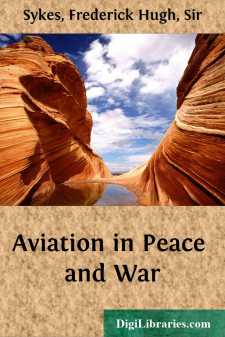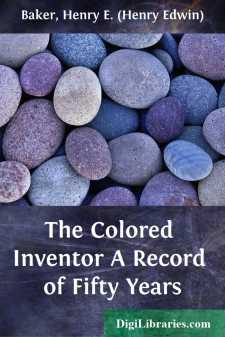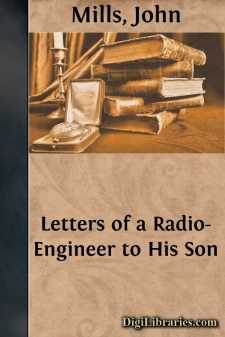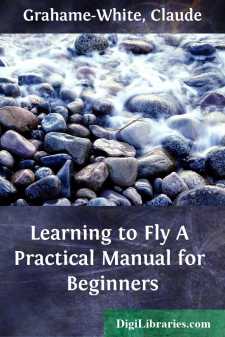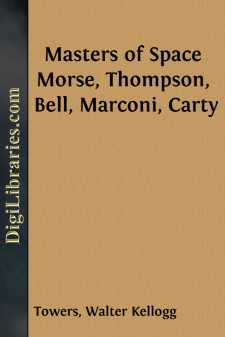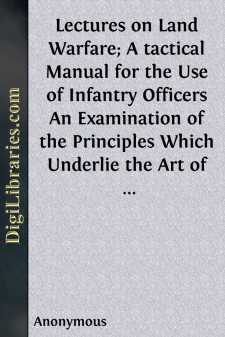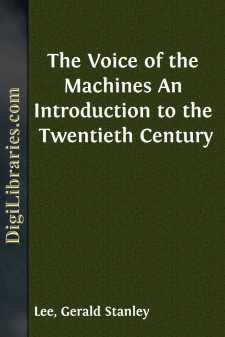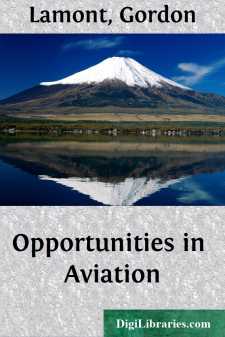Technology & Engineering
Technology & Engineering Books
Sort by:
CHAPTER I IT IS an old saying that "any fool can farm," and this was almost the truth when farming consisted chiefly in reducing the fertility of new, rich land secured at practically no cost from a generous Government. But to restore depleted soils to high productive power in economic systems is no fool's job, for it requires mental as well as muscular energy; and no apologies should be...
more...
INTRODUCTION Since the earliest communities of human beings first struggled for supremacy and protection, the principles of warfare have remained unchanged. New methods have been evolved and adopted with the progress of science, but no discovery, save perhaps that of gunpowder, has done so much in so short a time to revolutionize the conduct of war as aviation, the youngest, yet destined perhaps to be...
more...
The year 1913 marks the close of the first fifty years since Abraham Lincoln issued that famous edict known as the emancipation proclamation, by which physical freedom was vouchsafed to the slaves and the descendants of slaves in this country. And it would seem entirely fit and proper that those who were either directly or indirectly benefited by that proclamation should pause long enough at this...
more...
by:
John Mills
ELECTRICITY AND MATTER My Dear Son: You are interested in radio-telephony and want me to explain it to you. I’ll do so in the shortest and easiest way which I can devise. The explanation will be the simplest which I can give and still make it possible for you to build and operate your own set and to understand the operation of the large commercial sets to which you will listen. I’ll write you a...
more...
THEORIES OF TUITION Only eight years ago, in 1908, it was declared impossible for one man to teach another to fly. Those few men who had risen from the ground in aeroplanes, notably the Wright brothers, were held to be endowed by nature in some very peculiar way; to be men who possessed some remarkable and hitherto unexplained sense of equilibrium. That these men would be able to take other...
more...
I COMMUNICATION AMONG THE ANCIENTS Signaling the Fall of Troy—Marine Signaling among the Argonauts—Couriers of the Greeks, Romans, and Aztecs—Sound-signaling—Stentorophonic Tube—The Shouting Sentinels—The Clepsydra—Signal Columns—Indian Fire and Smoke Signals. It was very early in the history of the world that man began to feel the urgent need of...
more...
by:
Anonymous
THE ART OF WARFARE "The Art of War, like every other art, possesses its theory, its principles; otherwise, it would not be an art."—MARSHAL FOCH. The Art of War, like any other art, is based upon certain fixed principles, and there is no short cut which hurries the student to his goal. The long and laborious line of study is the only safe way, and there are many pitfalls to be avoided on the...
more...
Introduction The art and science of agriculture embrace most intentional human efforts to control biological activity so as to produce plants and animals of the sort wanted, when wanted. Rubber plantations, cattle ranches, vegetable gardens, dairy farms, tree farms, and a host of similar enterprises all represent human efforts to compel nature to serve man. Those who undertake agriculture have had,...
more...
THE MEN BEHIND THE MACHINES I MACHINES. AS SEEN FROM A MEADOW It would be difficult to find anything in the encyclopedia that would justify the claim that we are about to make, or anything in the dictionary. Even a poem—which is supposed to prove anything with a little of nothing—could hardly be found to prove it; but in this beginning hour of the twentieth century there are not a few of us—for...
more...
by:
Gordon Lamont
INTRODUCTION Any ordinary, active man, provided he has reasonably good eyesight and nerve, can fly, and fly well. If he has nerve enough to drive an automobile through the streets of a large city, and perhaps argue with a policeman on the question of speed limits, he can take himself off the ground in an airplane, and also land—a thing vastly more difficult and dangerous. We hear a great deal about...
more...



